If you are looking for ‘print on demand for fashion brands’, you’re…
The Best Shopify Marketing Tools For Your Store
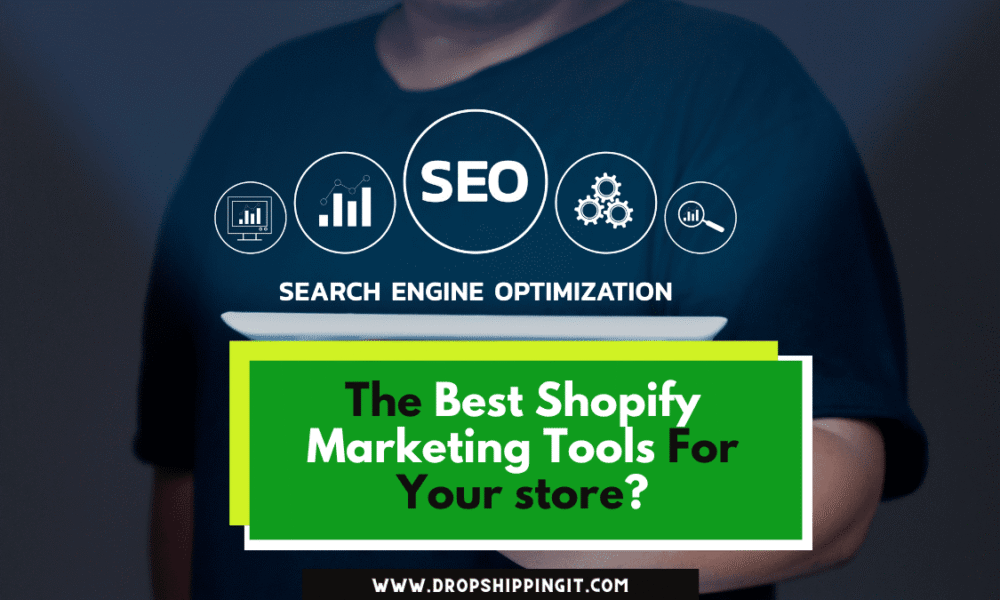
Shopify is the home of e-commerce entrepreneurs, with over 4 million active stores.
Shopify provides a platform for easy and efficient online store set-up and management, which is why it is so popular among other ecommerce Platforms .
Every digital entrepreneur wants to sell with Shopify. However, more than setting up a store and uploading products is required to set up and run a successful shopify store; there is more than meets the eye.
For a successful e-commerce business, you need the best marketing tools to help you implement, organize, and manage your Shopify store.
Start a free 3 Day trial and enjoy 3 months of Shopify for $1/month Instead of $39/month on selected plans. Sign up now
These tools will help you stand out, increase sales, and grow your business.
Who doesn’t want their ecommerce business to thrive?
Table of Contents
Why is e-commerce marketing important?
It doesn’t matter if your business is entirely an e-commerce or brick-and-mortar operation; you need to push your brand into the market to see success.
More than 21.5% of retail purchases happen online, giving businesses operating online a competitive advantage over those not.

You need to know why e-commerce marketing matters and what differentiates it from traditional marketing methods.
Here’s why:
Create the brand’s awareness.
Creating awareness increases the chances of making more sales. By pushing your brand out there, you increase its visibility to leads that can convert. As we evolve, businesses can sell beyond their geographical locations and reach a wider audience globally. You no longer have to worry about geographical boundaries; building brand awareness results in a more extensive global customer base.
Cheaper than the traditional options
E-commerce marketing will save you money regardless of the business’s size compared to the marketing methods used in the past. Traditional marketing strategies require higher upfront costs concerning physical investments and media space. With digital marketing, lower costs are involved, and the ROI and measurable results are higher since you target potential customers.
Facilitates data-driven marketing
E-commerce marketing facilitates data-driven marketing. As companies market their products online, they gather valuable information that helps them improve their marketing strategies.
They can monitor customers’ behaviors, understand their preferences, and determine their purchasing patterns. This data provides tangible evidence to online store owners, helping them streamline their marketing strategies. Business owners can identify and target their audience and optimize their marketing power, driving better business results in the long run.
The information helps companies identify where to modify their campaigns to resonate with their target customers. For instance, a business can add or revise an existing CTA (call to action) in content or a social media post to yield better performance.
Works all around the clock
E-commerce marketing is available around the clock. There’s no time limitation for reaching potential customers 24/7. You can sell or create brand awareness at night when potential customers actively check their social media accounts. You may also make them wake up to your email, as they check their emails early in the morning. Products are available 24/7, with no opening or closing hours online.
Which are the best Shopify marketing tools to use?
Shopify has plenty of powerful marketing tools to help you grow your business. These include tools for social media marketing, email marketing, influencer marketing, and content marketing—the list is endless. It’s so hard to narrow them down and select the best. Here, we’ve done the daunting work for you and selected your store’s top Shopify marketing tools.
1. Create, send, and manage custom communication with Shopify email.
When implementing your marketing strategies, you should pay attention to email marketing. Email marketing tools help you send emails and newsletters to your target audience, create email campaigns, organize different email lists, track emails, and analyze the results.
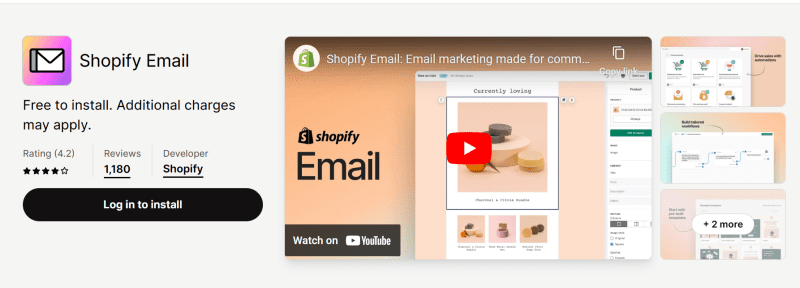
They also help you send automated emails to your customers, reminding them about their abandoned carts, making important announcements, and following up.
With Shopify email, you can enjoy creating branded emails with a drag-and-drop feature. Create emails that align with your brand and link them with your products as you share them with customers. Merchants of any tier can use email marketing at Shopify.
The charges are calculated according to the number of emails you send. You can also use pre-made automation templates to send customers emails on time and segment your email list to connect with the right audience.
2. Convert more customers with Shopify forms.
You can maximize the number of visitors to your website or online store through the Shopify forms. This free app works seamlessly with other Shopify tools like email, discounts, automation, segmentation, and more.
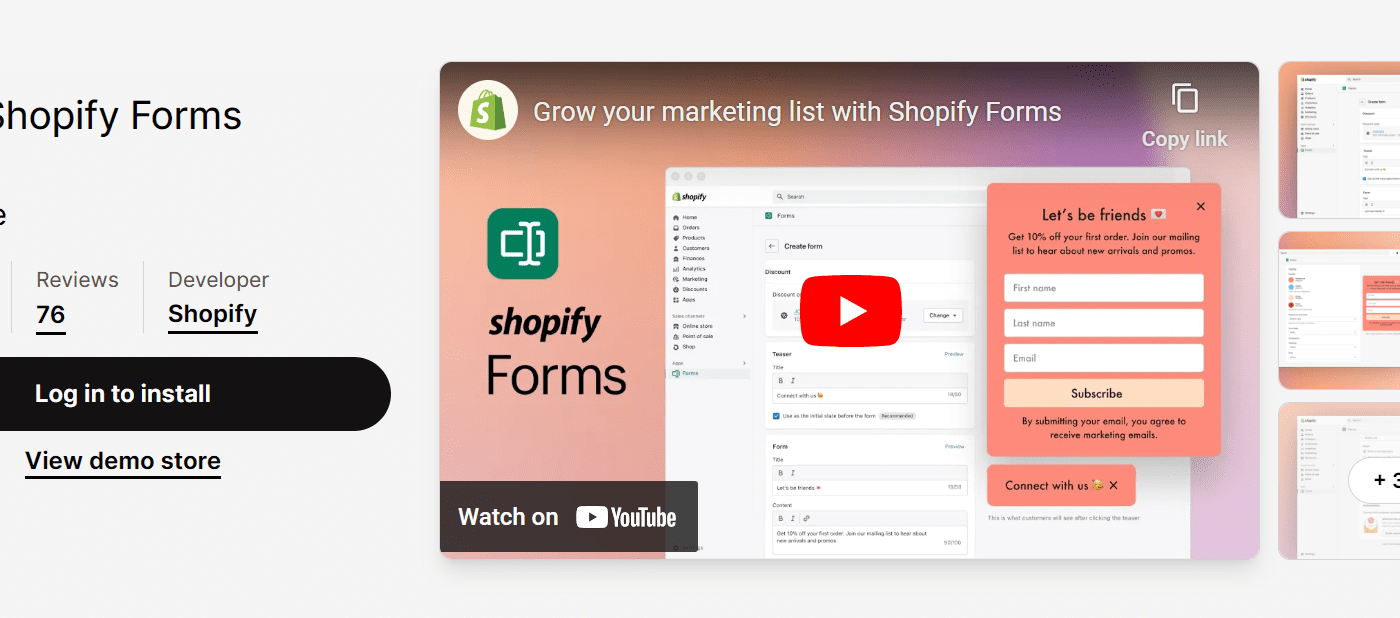
You can collect contact information, such as names and email addresses, from customers by offering attractive discounts and offers.
You may also customize your forms to match your brand and send follow-up emails at the right time without compromising the safety of the customer’s data.
Creating Shopify forms doesn’t require any coding experience. However, you need to be creative to make the most of your forms. For example, you need to create a teaser to stimulate interest. Visitors often need more time to be ready to share their details on your form.
A brief teaser about your offer or discount, such as “Don’t miss out!!” or “Perks Perks Perks,” followed by the offer, can drive visitors to fill out the form as soon as it shows up. You can always customize the teaser to capture the most attention from your visitors.
Once the customer clicks on the expanded form, you are already one step closer to adding them to your list. But before you do that, ensure your form is fully customized.
Include a header, a CTA, and a confirmation message on your form. Here, you have an opportunity to bring out your brand’s personality.
You can customize the visual experience of the form by adding colors that match your brand. You can also choose when and where the form will appear in the store.
3. Reach customers effectively with Shopify marketing automation.
Imagine manually sending emails to everyone who puts a product into a cart and abandons it—or sending welcoming messages to everyone who signs up at your store? It could be more tedious and time-consuming to do that.
Here is where marketing automation comes in.
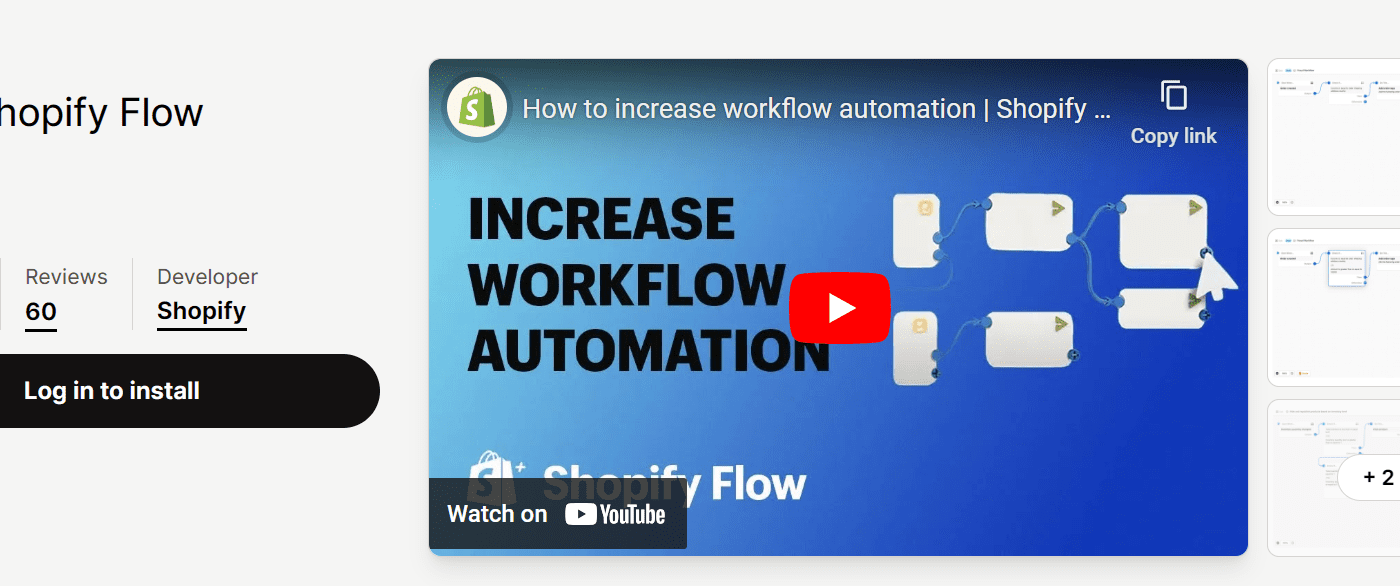
These are software programs crafted to perform repetitive and time-consuming tasks, allowing you and your team to focus on other strategic responsibilities.
In simple terms, marketing automation automates the marketing processes. The software makes marketing more efficient for businesses, saving time and resources.
Marketing automation allows you to automatically send multichannel communications to customers, such as email, push notifications, and SMS.
These automations are available on Shopify for the basic plan and higher tiers. The software automates different aspects of marketing the business as follows:
- Creating and maintaining one database for customer data.
- Creating audience segments
- Automating repetitive tasks, such as welcoming emails
- Sending custom messages to various audiences
- Test different messaging
- Generate analytics reports.
There are various forms of marketing automation, including email marketing, customer relationship management, and Facebook advertising.
Before implementing marketing automation, be clear on your business goals and find the right technology to apply your strategy.
Monitoring your results to determine whether your strategy works well or requires adjustments is essential.
4. Turn conversations into conversions through Shopify Inbox.
Conversations are critical in digital business as more customers interact with brands online. 70% of conversations are with customers willing to buy or trying to make a purchasing decision.
With Shopify’s inbox, you’ll turn store visitors into buyers using the power of chat. The messaging tools are easy to use, making it easier for you to manage conversations anytime and from anywhere.
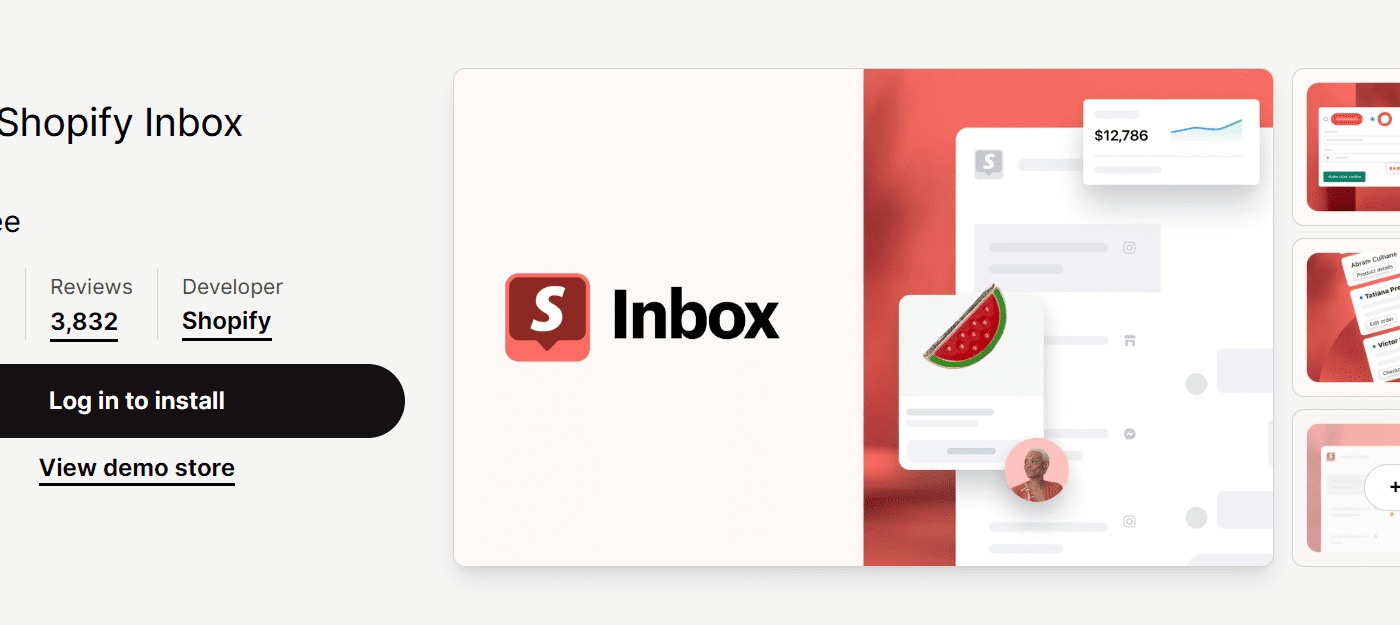
The Shopify inbox gives you a fast and personal way to interact with customers. From the comfort of your admin desk, you can customize how the chat looks, availability, saved responses, etc.
Shopify’s inbox also allows you to track your chat performance for better planning and growth.
When you open the application, you’ll find a snapshot showing your chat performance, including the number of chats, the response time, and chats that convert into sales.
Another essential feature of the Shopify inbox is its extensiveness. You want to be on every channel where your potential customers are, and this app offers that. It’s easy to extend it to other channels and manage it simultaneously.
Connect with your customers directly through the Shopify inbox or integrate it with popular messaging channels such as Facebook Messenger and Instagram Inbox.
Whenever you are unavailable for live chat, you can collect the customers’ information and contact them later via email. This means you can take advantage of a sale, whether you are away or the customer leaves your store.
Shopify Inbox is a powerful marketing and sales tool and is the future of e-commerce. It goes beyond providing customer support, tags, and rich data to help convert the conversations into sales.
When a customer sends a message, you know what questions to expect since you have context on what they’ve added or removed from their cart. This helps you prepare and provide personalized recommendations.
5. Be at the edge of the curve with market segmentation.
Segmentation is also one of the best marketing tools to use at Shopify. It involves grouping the market into segments and smaller groups. Segmenting helps a retailer be more specific when creating marketing strategies and sales campaigns.
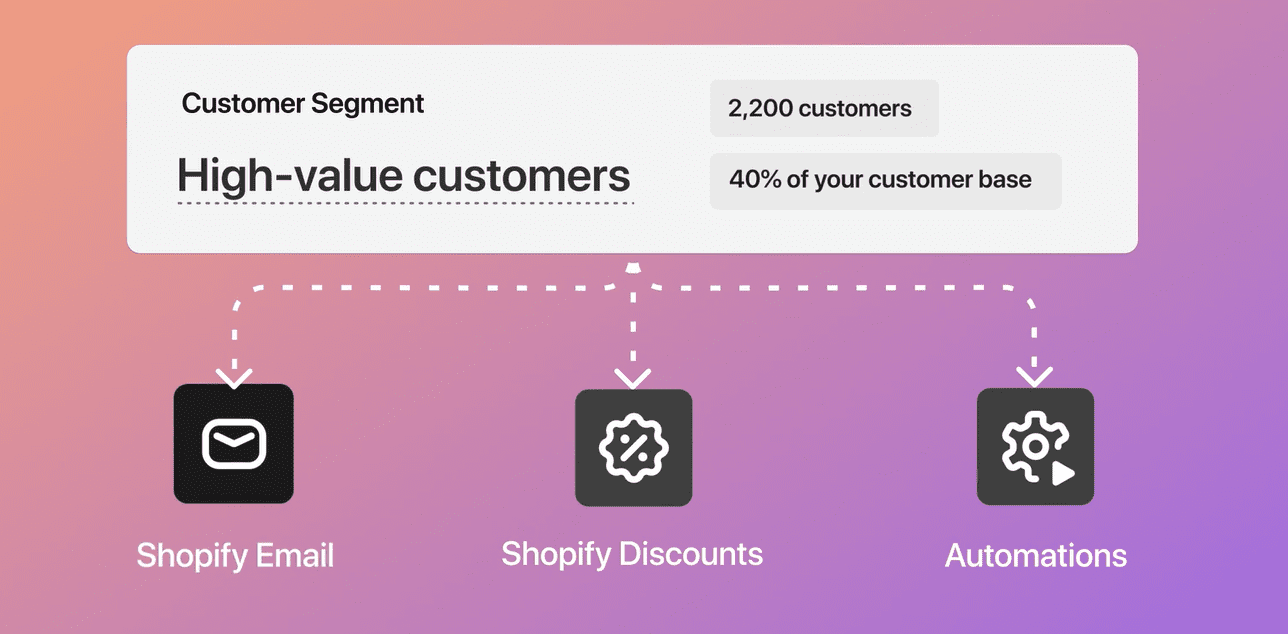
It further helps them to market to the right people at the right time and use the correct strategy. There are various types of market segmentation, including:
- Demographic: This involves dividing customers by age, gender, income, education, occupation, or marital status. It’s an effective way to market because people with the same traits tend to share the same interests.
- Geographic: Here, the customers are divided based on their country, region, or city. This type of segmentation is ideal when promoting physical stores, local events, or products linked to certain weather conditions.
- Behavioral segmentation categorizes customers based on their loyalty, browsing history, purchasing habits, email engagement, and product usage.
- Psychographic: Here, customers are divided according to their social status, values, attitudes, beliefs, opinions, and interests. This can help you build campaigns that speak for the target audience.
- Firmographic: This segmentation is used by businesses selling to other companies (B2B). It categorizes the market based on the industry, location, business size, annual revenue, or job role.
Remember that marketing segmentation is continuous as customers’ interests change and new competitors arise. You’ll stay ahead if you use Shopify segmentation tools to repeat market and customer segmentation.
Best Shopify Marketing Tools: Final Thoughts
Finding the best marketing tools for your business is quite a task. The tools we’ve just discussed will help you market your products to a broader audience and build engagements that translate into sales.
Shopify is a user-friendly platform; therefore, don’t hesitate to explore and learn more about these tools. With the integration of the e-commerce bot through the Shopify bot, it has always been challenging to market your brand.
One of the best and most celebrated third-party shopify marketing tools is Shopify Bot; it helps with social media automation, runs ads with AI, and provides an omnichannel chatbot, which is also powered by AI, increasing store conversion and assisting with management.
Frequently Asked Questions (FAQs)
- What is a digital marketing tool?
These are the tools that help digital entrepreneurs generate more sales through processes such as lead generation, content creation, and reward programs.
- What is the best marketing tool for my business?
No marketing tool can be termed the best. Every tool is unique in its own way. It’s your job to choose marketing tools that will accommodate different needs at different stages of your business.
- What tools are ideal for marketing?
The most popular marketing tools include SEO, email marketing, content marketing, social media marketing, live chat, designs and visuals, lead generation, SMS marketing, influencer and affiliate marketing, etc.

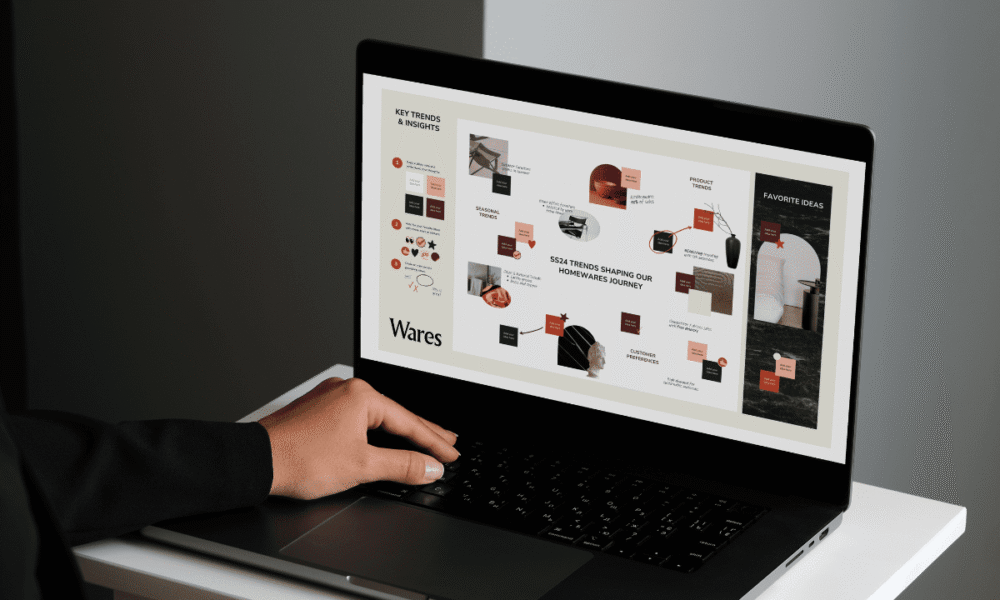
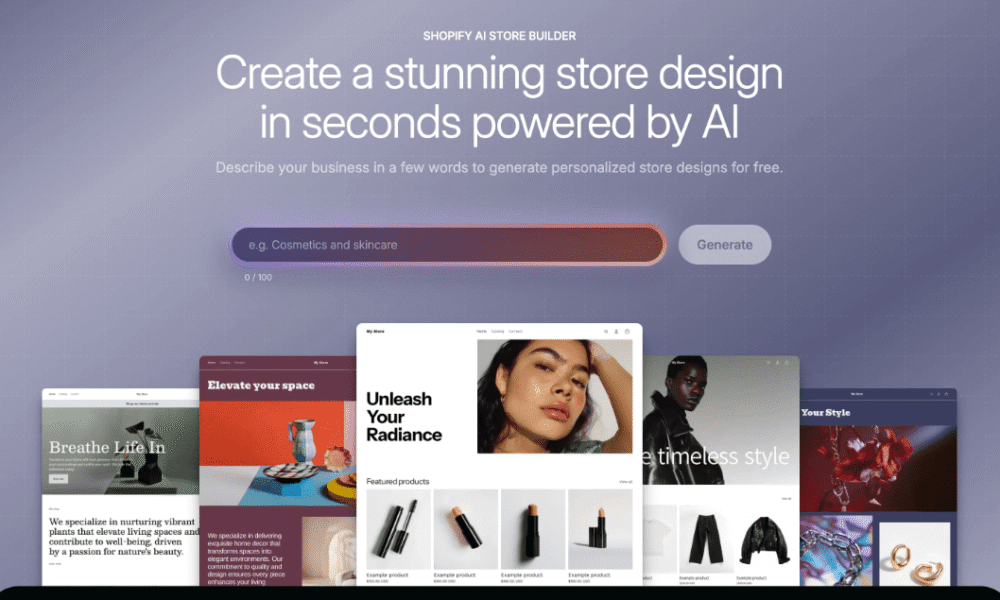

Comments (0)